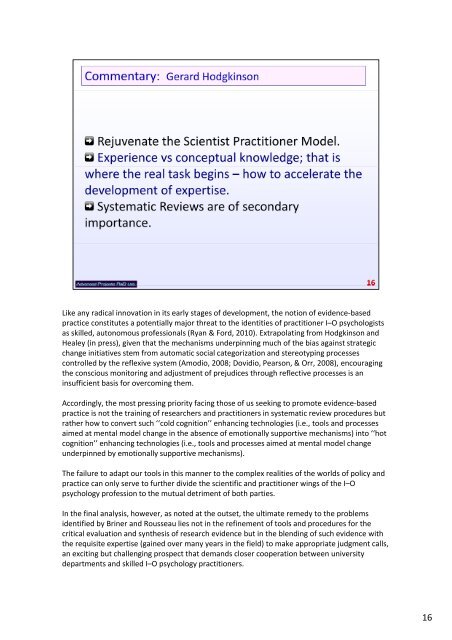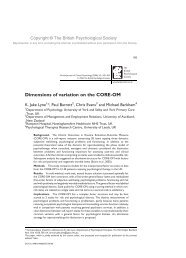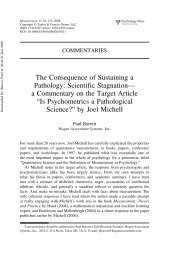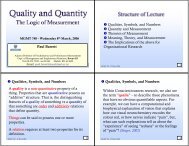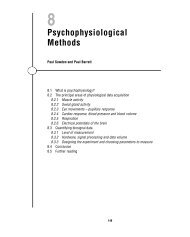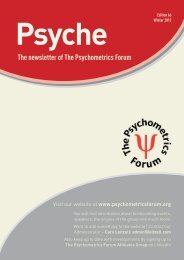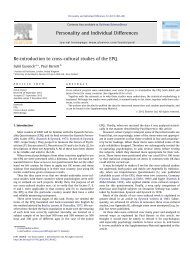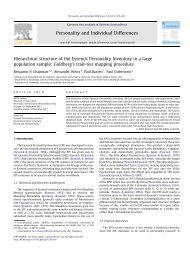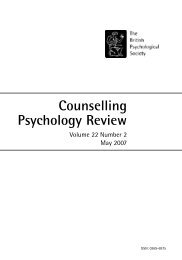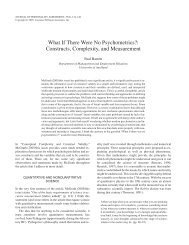Evidence-based IO psychology
Evidence-based IO psychology
Evidence-based IO psychology
You also want an ePaper? Increase the reach of your titles
YUMPU automatically turns print PDFs into web optimized ePapers that Google loves.
Like any radical innovation in its early stages of development, the notion of evidence‐<strong>based</strong><br />
practice constitutes a potentially major threat to the identities of practitioner I–O psychologists<br />
as skilled, autonomous professionals (Ryan & Ford, 2010). Extrapolating from Hodgkinson and<br />
Healey (in press), given that the mechanisms underpinning much of the bias against strategic<br />
change initiatives stem from automatic social categorization and stereotyping processes<br />
controlled by the reflexive system (Amodio, 2008; Dovidio, Pearson, & Orr, 2008), encouraging<br />
the conscious monitoring and adjustment of prejudices through reflective processes is an<br />
insufficient basis for overcoming them.<br />
Accordingly, the most pressing priority facing those of us seeking to promote evidence‐<strong>based</strong><br />
practice is not the training of researchers and practitioners in systematic review procedures but<br />
rather how to convert such ‘‘cold cognition’’ enhancing technologies (i.e., tools and processes<br />
aimed at mental model change in the absence of emotionally supportive mechanisms) into ‘‘hot<br />
cognition’’ enhancing technologies (i.e., tools and processes aimed at mental model change<br />
underpinned by emotionally supportive mechanisms).<br />
The failure to adapt our tools in this manner to the complex realities of the worlds of policy and<br />
practice can only serve to further divide the scientific and practitioner wings of the I–O<br />
<strong>psychology</strong> profession to the mutual detriment of both parties.<br />
In the final analysis, however, as noted at the outset, the ultimate remedy to the problems<br />
identified by Briner and Rousseau lies not in the refinement of tools and procedures for the<br />
critical evaluation and synthesis of research evidence but in the blending of such evidence with<br />
the requisite expertise (gained over many years in the field) to make appropriate judgment calls,<br />
an exciting but challenging prospect that demands closer cooperation between university<br />
departments and skilled I–O <strong>psychology</strong> practitioners.<br />
16


